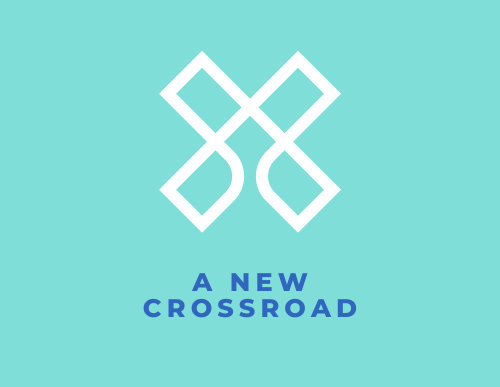Understanding ADHD
To effectively navigate the world of ADHD treatment, it’s essential to have a solid understanding of this neurodevelopmental disorder. This section will cover the basics of ADHD, including its definition, common symptoms, and the impact it can have on daily life.
What is ADHD?
ADHD, which stands for Attention-Deficit/Hyperactivity Disorder, is a neurodevelopmental disorder that affects both children and adults. It is characterized by persistent patterns of inattention, hyperactivity, and impulsivity that can significantly impact an individual’s daily functioning.
People with ADHD often struggle with maintaining focus, staying organized, and regulating their impulses. These challenges can interfere with various aspects of life, including academic performance, work productivity, and interpersonal relationships.
Common Symptoms of ADHD
ADHD manifests differently in individuals, but there are several core symptoms that are commonly associated with the disorder. These symptoms are classified into two main categories: inattention and hyperactivity/impulsivity.
The inattentive symptoms of ADHD include:
- Difficulty sustaining attention and frequently becoming easily distracted.
- Struggles with organizing tasks and activities.
- Frequently losing items necessary for tasks or activities.
- Forgetfulness and frequently making careless mistakes.
The hyperactivity/impulsivity symptoms of ADHD include:
- Restlessness and excessive fidgeting.
- Difficulty engaging in activities quietly.
- Impulsivity, such as blurting out answers before hearing the complete question.
- Difficulty waiting for one’s turn in conversations or situations.
It’s important to note that the severity and combination of symptoms can vary among individuals with ADHD. Some may predominantly exhibit symptoms of inattention, while others may display more hyperactivity and impulsivity. Understanding the specific symptoms one experiences is crucial in determining the most appropriate treatment approach.
The Impact of ADHD on Daily Life
ADHD can have a significant impact on various aspects of daily life. Individuals with ADHD often struggle with organizational skills, time management, and task completion. This can lead to difficulties in school or work environments, affecting academic or occupational performance.
Additionally, ADHD can impact social interactions and relationships. Impulsivity and inattention may make it challenging to listen actively, follow conversations, or maintain focus during social interactions. These difficulties can lead to misunderstandings, strained relationships, and even feelings of frustration or isolation.
Recognizing the impact of ADHD on daily life is crucial in seeking appropriate treatment and support. With the right interventions and strategies, individuals with ADHD can effectively manage their symptoms and thrive in various domains of life.
As we explore different treatment approaches for ADHD, it’s important to keep in mind that each individual’s experience with ADHD is unique. Collaborating with healthcare professionals, such as those at A New Crossroad in Powedersville, SC, can help in developing individualized treatment plans that address specific needs and goals.
Treatment Approaches for ADHD
When it comes to managing ADHD, a variety of treatment approaches are available. These approaches can be broadly categorized into medication-based treatments, behavioral therapies, and alternative and complementary treatments. Each approach has its own unique benefits and considerations, and the choice of treatment depends on the individual’s specific needs and preferences.
Medication-Based Treatments
Medication-based treatments are often the first line of defense in managing ADHD symptoms. These medications work by targeting the underlying neurochemical imbalances in the brain, helping to improve focus, attention, and impulse control.
Two main types of medications are commonly prescribed for ADHD: stimulant medications and non-stimulant medications. Stimulant medications, such as methylphenidate and amphetamines, are the most commonly prescribed. They work by increasing the levels of certain neurotransmitters in the brain, leading to improved attention and concentration. Non-stimulant medications, such as atomoxetine and guanfacine, work by targeting different neurotransmitters to achieve similar results.
It’s important to note that medication-based treatments should always be prescribed and monitored by a healthcare professional. They may come with potential side effects and require regular adjustments to find the optimal dosage. Collaborating with healthcare professionals is crucial in finding the right medication and dosage for each individual. For more information on the various medication options, visit our article on ADHD treatment.
Behavioral Therapies
Behavioral therapies play a significant role in managing ADHD symptoms, especially in conjunction with medication-based treatments. These therapies focus on teaching individuals specific skills and strategies to improve behavior, develop coping mechanisms, and enhance overall functioning.
Cognitive-Behavioral Therapy (CBT) is a commonly used behavioral therapy for ADHD. It aims to help individuals identify and change negative thought patterns and behaviors that contribute to ADHD symptoms. CBT can help individuals develop organizational skills, improve time management, and enhance problem-solving abilities.
Parent training and education is another important component of behavioral therapies for ADHD. These programs provide parents with strategies and techniques to effectively manage their child’s behavior, establish routines, and create a supportive environment.
School-based interventions are also crucial in managing ADHD symptoms in academic settings. These interventions may include individualized education plans (IEPs), classroom accommodations, and specialized support services to help children with ADHD thrive in the school environment.
Alternative and Complementary Treatments
In addition to medication-based treatments and behavioral therapies, some individuals may explore alternative and complementary treatments for ADHD. It’s important to approach these treatments with caution and consult with healthcare professionals before incorporating them into a treatment plan.
Dietary approaches, such as eliminating certain food additives or following specific diets, have been explored in relation to ADHD symptom management. However, the evidence supporting their effectiveness is limited, and more research is needed to establish their benefits.
Herbal supplements, such as omega-3 fatty acids and herbal extracts, have also been investigated for their potential role in managing ADHD symptoms. While some studies have shown promising results, more research is necessary to determine their efficacy and safety.
Mindfulness and meditation practices may provide individuals with ADHD a way to improve self-awareness, reduce stress, and enhance overall well-being. These practices can be used as a complementary approach alongside other treatment methods to help individuals better manage their symptoms.
Finding the right treatment combination for ADHD involves collaborating with healthcare professionals, developing individualized treatment plans, and regularly monitoring and adjusting treatment as needed. By considering medication-based treatments, behavioral therapies, and alternative and complementary treatments, individuals with ADHD can explore a comprehensive approach to effectively manage their symptoms and improve their quality of life.
Medication-Based Treatments
When it comes to treating ADHD, medication-based approaches are commonly used to help manage the symptoms and improve daily functioning. There are two main categories of medications used in the treatment of ADHD: stimulant medications and non-stimulant medications.
Stimulant Medications
Stimulant medications are often the first line of treatment for ADHD. These medications work by increasing the levels of certain chemicals in the brain that play a role in attention, focus, and impulse control. They are available in different formulations, including short-acting and long-acting options.
Stimulant medications have been found to be highly effective in reducing ADHD symptoms in many individuals. They can help improve attention, decrease hyperactivity, and enhance impulse control. The specific medication and dosage will be determined by a healthcare professional based on individual needs and response.
It’s important to note that stimulant medications may have side effects, although these are generally mild and well-tolerated. Some common side effects may include decreased appetite, trouble sleeping, and mild stomachaches. These side effects often decrease over time or with dosage adjustments.
Non-Stimulant Medications
For individuals who do not respond well to or cannot tolerate stimulant medications, non-stimulant medications may be considered. These medications work differently from stimulants and are often prescribed as an alternative treatment option.
Non-stimulant medications for ADHD include different classes of drugs, such as atomoxetine, guanfacine, and clonidine. These medications can help improve attention, impulse control, and hyperactivity. They may be particularly useful for individuals with certain medical conditions or those who have experienced adverse effects from stimulant medications.
As with any medication, it’s important to work closely with a healthcare professional to find the most appropriate medication and dosage for individual needs. Regular monitoring and follow-up appointments will help ensure that the medication is effective and well-tolerated.
Remember, medication-based treatments for ADHD are just one part of a comprehensive treatment plan. Behavioral therapies, alternative treatments, and lifestyle modifications may also be incorporated to provide a holistic approach to managing ADHD symptoms. To explore other treatment approaches for ADHD, please refer to the respective sections in this article.
For more information on other mental health conditions and treatment options, you can visit our articles on anxiety treatment, alcohol abuse treatment, bipolar disorder treatment, depression treatment, opioid addiction treatment, ptsd treatment, suboxone clinic, and suboxone doctors.
Behavioral Therapies
While medication-based treatments play a significant role in managing ADHD, behavioral therapies are also essential components of a comprehensive treatment plan. These therapies focus on addressing specific behaviors, developing coping strategies, and improving overall functioning. Here are some common behavioral therapies used in ADHD treatment:
Cognitive-Behavioral Therapy (CBT)
Cognitive-Behavioral Therapy (CBT) is a widely recognized and effective approach in treating ADHD. CBT aims to identify and modify negative thought patterns and behaviors that contribute to ADHD symptoms. By working with a therapist, individuals with ADHD can develop strategies to manage impulsivity, improve organizational skills, and enhance problem-solving abilities.
CBT often involves setting specific goals and implementing practical techniques to address challenges associated with ADHD. These may include time management strategies, organization skills training, and social skills development. The goal of CBT is to empower individuals with ADHD to better understand their condition and develop healthy coping mechanisms.
Parent Training and Education
Parent training and education programs are crucial for supporting children with ADHD. These programs provide parents with the knowledge and skills necessary to effectively manage their child’s behavior and create a positive home environment. Through parent training, parents learn strategies for setting consistent expectations, implementing discipline, and promoting positive communication.
These programs also educate parents about ADHD itself, helping them better understand their child’s condition and its impact on daily life. By equipping parents with the tools they need, parent training programs can significantly improve the overall well-being and functioning of both the child and the family.
School-based Interventions
Given that ADHD often affects academic performance and social interactions, school-based interventions are vital for supporting children with ADHD in an educational setting. These interventions may involve collaboration between teachers, school psychologists, and parents to develop individualized education plans (IEPs) or 504 plans.
School-based interventions for ADHD can include implementing behavioral strategies, providing academic accommodations, and promoting social and emotional support. These interventions aim to create a supportive and structured environment that maximizes the child’s learning potential and minimizes the impact of ADHD on their academic and social development.
By combining medication-based treatments with behavioral therapies, individuals with ADHD can effectively manage their symptoms and improve their overall quality of life. It is important to collaborate with healthcare professionals to develop individualized treatment plans that address the unique needs of each person with ADHD. Regular monitoring and adjustment of treatment strategies are also crucial to ensure ongoing effectiveness.
Alternative and Complementary Treatments
In addition to medication-based treatments and behavioral therapies, alternative and complementary treatments can also play a role in managing ADHD symptoms. These approaches aim to provide additional support and enhance overall well-being. Here, we explore three alternative and complementary treatments for ADHD: dietary approaches, herbal supplements, and mindfulness and meditation.
Dietary Approaches
Dietary interventions have been studied as a potential adjunct therapy for ADHD. While more research is needed, some individuals with ADHD may find that certain dietary changes can have a positive impact on their symptoms. It is important to note that dietary approaches should not replace other evidence-based treatments but can be used as part of a holistic treatment plan.
Some dietary recommendations for individuals with ADHD include:
- Increasing omega-3 fatty acids: Omega-3 fatty acids, found in fatty fish such as salmon and tuna, as well as in walnuts and flaxseeds, are believed to support brain health and may have a positive effect on ADHD symptoms.
- Limiting artificial food additives: Some studies suggest that certain food additives, such as artificial colors and preservatives, may worsen ADHD symptoms in some individuals. It can be beneficial to minimize the consumption of processed foods that contain these additives.
- Balancing blood sugar levels: Maintaining stable blood sugar levels throughout the day may help manage ADHD symptoms. It is recommended to consume regular, balanced meals and snacks that include complex carbohydrates, protein, and healthy fats.
It is important to consult with a healthcare professional or a registered dietitian before making any significant dietary changes, especially when it comes to children. They can provide personalized guidance and support in implementing dietary approaches as part of an individualized treatment plan.
Herbal Supplements
Some individuals may consider using herbal supplements as a complementary treatment for ADHD. However, the evidence supporting their effectiveness is limited, and more research is needed to determine their safety and efficacy. It is crucial to consult with a healthcare professional before taking any herbal supplements, as they can interact with medications or have potential side effects.
Common herbal supplements that have been studied for ADHD include:
| Herbal Supplement | Potential Benefits |
|---|---|
| Ginkgo biloba | May improve cognitive function and attention |
| Pycnogenol | May help reduce hyperactivity and improve attention |
| Rhodiola rosea | May have a calming effect and improve mood |
It is essential to note that herbal supplements should not replace evidence-based treatments for ADHD. They should only be used under the guidance of a healthcare professional and as part of a comprehensive treatment plan.
Mindfulness and Meditation
Mindfulness and meditation practices can help individuals with ADHD improve focus, reduce stress, and enhance overall well-being. These practices involve training the mind to stay present and non-judgmentally observe thoughts, feelings, and sensations.
Mindfulness and meditation techniques that can be beneficial for individuals with ADHD include:
- Mindful breathing: Focusing on the breath can help bring attention to the present moment and reduce distractions.
- Body scan meditation: This practice involves systematically scanning the body, paying attention to physical sensations and promoting relaxation.
- Mindful movement: Engaging in activities such as yoga or tai chi can help improve body awareness, reduce restlessness, and promote relaxation.
Incorporating mindfulness and meditation into daily life can be a valuable strategy for managing ADHD symptoms. It is important to note that learning these practices may require guidance and patience. There are various resources available, including guided meditation apps and classes, that can support individuals in developing a mindfulness practice.
Alternative and complementary treatments, such as dietary approaches, herbal supplements, and mindfulness and meditation, can be considered as part of a comprehensive treatment plan for ADHD. It is crucial to work closely with healthcare professionals to ensure that these treatments are used safely and effectively. Collaborating with a healthcare professional can help create an individualized treatment plan that combines evidence-based approaches with alternative and complementary treatments to best address the unique needs of each individual with ADHD.
Finding the Right Treatment Combination
When it comes to managing ADHD, finding the right treatment combination is key to effectively address the symptoms and improve daily functioning. Collaborating with healthcare professionals, developing individualized treatment plans, and monitoring and adjusting treatment are crucial steps in this process.
Collaborating with Healthcare Professionals
Collaboration with healthcare professionals, such as doctors, psychologists, and therapists, is essential in finding the most suitable treatment approach for ADHD. These professionals have the expertise and experience to assess the individual’s specific needs and guide them towards the appropriate treatment options.
Working closely with healthcare professionals allows for a comprehensive evaluation of the individual’s symptoms, medical history, and personal circumstances. This collaboration ensures that the treatment plan is tailored to address their unique needs and goals. Healthcare professionals can provide valuable insights, answer questions, and offer guidance throughout the treatment journey.
Individualized Treatment Plans
ADHD is a complex disorder that affects individuals differently. Therefore, treatment plans should be individualized to meet the specific needs of each person. An individualized treatment plan takes into account factors such as the severity of symptoms, coexisting conditions, personal preferences, and lifestyle considerations.
An effective treatment plan for ADHD often includes a combination of medication-based treatments, behavioral therapies, and alternative or complementary treatments. By combining different approaches, individuals can target various aspects of ADHD symptoms and improve overall functioning. This comprehensive approach is designed to address not only the core symptoms of ADHD but also any associated challenges, such as impulsivity, time management, and social skills.
Monitoring and Adjusting Treatment
Regular monitoring and periodic adjustments of the treatment plan are essential for optimizing outcomes in ADHD management. As individuals progress through their treatment journey, it is important to evaluate the effectiveness of the chosen interventions and make any necessary modifications.
Monitoring treatment involves assessing the individual’s response to medication, therapy, or other interventions. This may include tracking changes in symptoms, functional improvements, side effects, and overall quality of life. Through ongoing monitoring, healthcare professionals can identify any areas that require further attention or adjustment.
Adjusting treatment may involve modifying medication dosages, changing therapeutic techniques, or introducing new strategies to address emerging challenges. It is crucial to communicate openly with healthcare professionals, report any changes in symptoms or concerns, and actively participate in the treatment process.
By collaborating with healthcare professionals, developing individualized treatment plans, and continuously monitoring and adjusting treatment, individuals with ADHD can increase the likelihood of finding an effective treatment combination that suits their unique needs and maximizes their overall well-being. Remember, seeking professional guidance is crucial in navigating the complexities of ADHD treatment.





